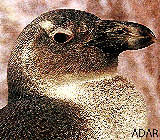
Hillula Calendar
Compiled by
Rabbi Zev-Hayyim Feyer
About This Calendar
It is customary to observe the anniversary of the passing of a loved one or a great soul by reciting the Kaddish. In the Ashkenazic tradition, this anniversary is called the Yahrzeit, literally, the “Year-time,” and it is often a day of sadness, a day of mourning, even a day of fasting. In Sephardic, Kabbalistic, and Hassidic circles, this anniversary is called the Hillula. Hillula "הילולא" is an Aramaic term meaning a festivity, especially a wedding celebration, and the mystics understood the anniversary of a righteous individual’s passing as akin to a wedding, in which the soul rises, each year, to a new and higher spiritual level. If we understand the hillula as a day on which the soul takes another step toward its next incarnation (or toward transcending the cycle of gilgul1, we can celebrate and rejoice rather than mourning.
Traditionally, the term hillula is applied only to the anniversary of the passing of a tzaddik2. We, rather, apply itto everyone, for two reasons. As the Prophet says, "ְעַמֵּךְ כֻּלָּם צַדִּיקִים"; all Thy people are righteous.”3 Further, should a particular individual not quite measure up to the designation of tzaddik, s/he needs the celebration even more, to enable his or her soul to rise.
We present here a comprehensive list of Hillulas and other significant dates in the Jewish calendar, with their Hebrew and English dates. English dates marked with a superscripted J are according to the Julian calendar then in use. English dates marked with a superscripted E are evening dates and therefore correspond with the following Hebrew date.
Please click for current Hillula Calendar. Note: This is a LARGE file.
Or click on an image for each individual month of the Hillula Calendar
 KISLEV / כסלו KISLEV / כסלו |
 MARHESHVAN / מרחשון MARHESHVAN / מרחשון |
 TISHRI / 'תשר |
|
 2 ADAR / אדר ב' |
 1 ADAR / אדר אי 1 ADAR / אדר אי |
 ADAR / אדר |
 SHEVAT / שבט SHEVAT / שבט |
 TAMMUZ / תמוז TAMMUZ / תמוז |
 SIVAN / ס'ון |
 IYAR / א'ר |
 NISAN / ניסן NISAN / ניסן |
 ELUL / אלול |
 AV / אב |

